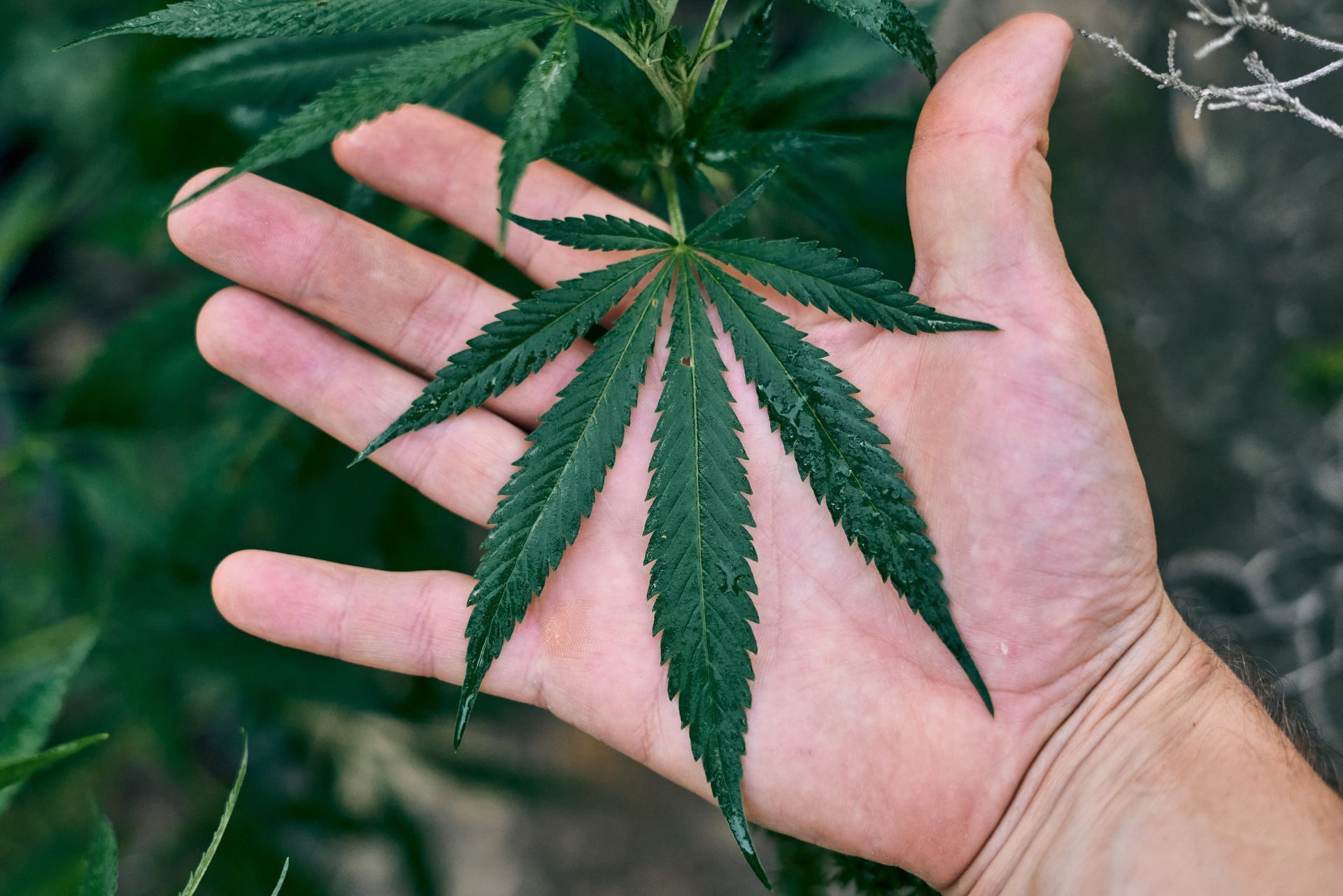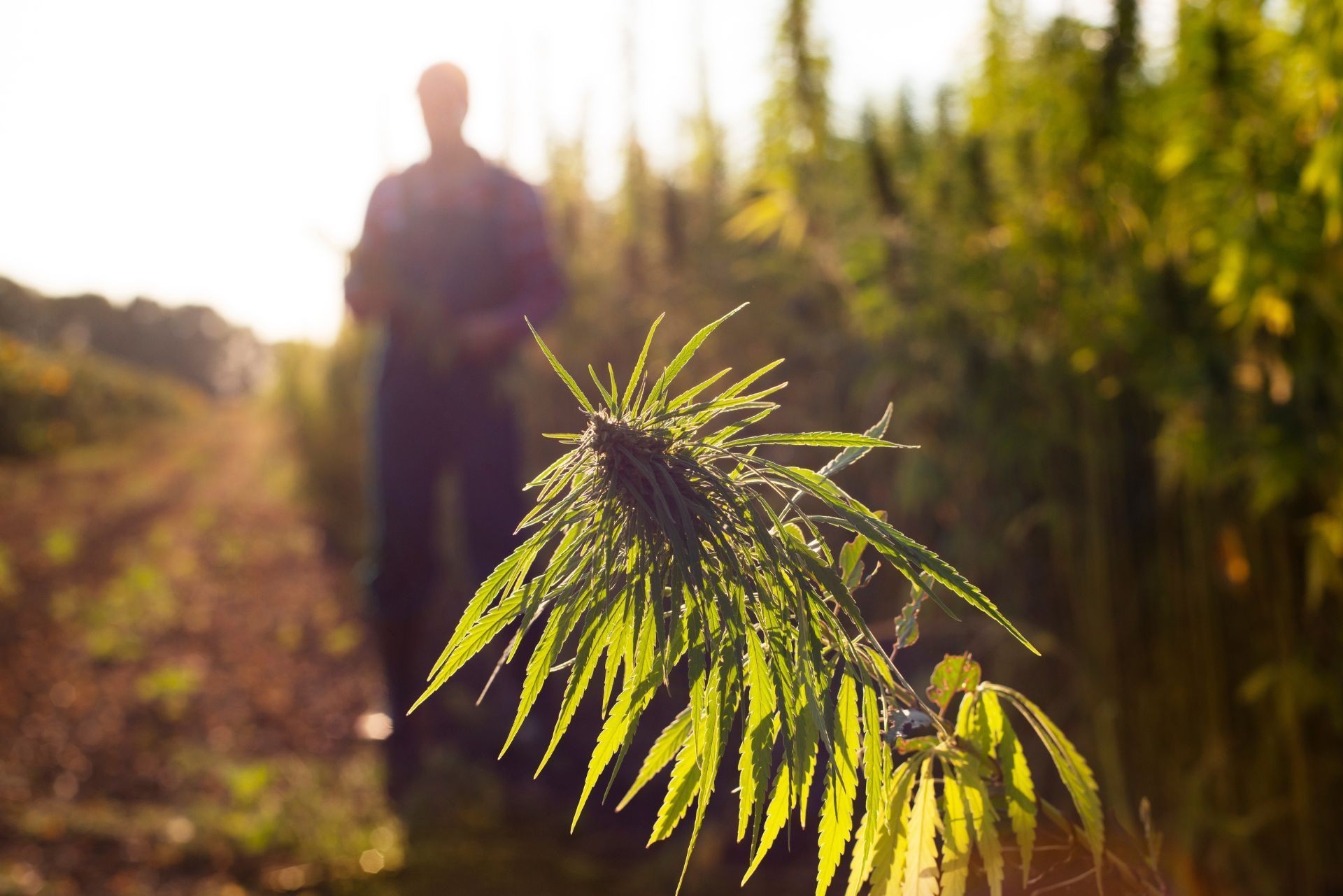Top 3 Recommended Policies

By: Lance Hale
Licensed Commercial Insurance Specialist
425-320-4280
The cannabis industry in Alaska has grown rapidly since the state legalized recreational marijuana in 2014. With this growth comes a unique set of challenges and risks for cannabis businesses, making insurance a critical component for success and sustainability. Whether you are a cultivator, dispensary owner, or ancillary service provider, understanding Alaska cannabis insurance is essential to protect your investment and comply with state regulations.
The Landscape of Cannabis in Alaska
Alaska was among the pioneers in legalizing recreational cannabis, with voters approving Measure 2 in 2014. Since then, the industry has expanded to include cultivation, retail, manufacturing, and testing facilities. According to the Alaska Marijuana Control Board, there were over 200 licensed cannabis businesses as of early 2024, reflecting a vibrant but complex market. This growth has not only created new job opportunities but has also spurred interest in cannabis tourism, with visitors flocking to experience Alaska's unique cannabis culture, which includes everything from guided farm tours to cannabis-infused culinary experiences.
However, cannabis remains federally illegal, which complicates many aspects of business operations, including banking and insurance. This federal-state conflict means cannabis businesses in Alaska face unique risks that traditional businesses do not, making specialized insurance coverage a necessity. Many cannabis entrepreneurs are forced to operate on a cash-only basis, which can lead to security concerns and complicates financial management. As a result, the industry has seen a rise in innovative solutions, such as cryptocurrency transactions and alternative banking options tailored for cannabis businesses.
Why Insurance is Crucial for Alaska Cannabis Businesses
Operating a cannabis business involves numerous risks such as property damage, theft, crop loss, product liability, and regulatory compliance issues. Without adequate insurance, a single incident could lead to devastating financial losses or even business closure. Insurance not only protects against these risks but also helps build credibility with investors, landlords, and customers. Furthermore, as the industry matures, insurance providers are beginning to offer more comprehensive policies that address the specific needs of cannabis businesses, including coverage for product recalls and cyber liability, which are becoming increasingly important in an era of digital transactions.
Moreover, Alaska’s harsh weather conditions, including heavy snow and cold temperatures, pose additional risks to cannabis cultivation and storage facilities. Insurance tailored to these environmental factors is vital to safeguard assets and ensure business continuity. Growers must consider not only the immediate effects of weather on their crops but also the long-term implications of climate change, which could alter growing seasons and affect yield. As a result, many businesses are investing in advanced technology for climate control and monitoring, further emphasizing the need for insurance that covers these technological investments and the potential risks associated with them. This proactive approach not only enhances resilience but also positions businesses favorably in a competitive market.
Types of Cannabis Insurance Available in Alaska
Because of the unique challenges faced by cannabis businesses, standard commercial insurance policies often do not cover cannabis-related activities. Instead, businesses must seek specialized cannabis insurance policies designed to address the specific risks of the industry.
1. General Liability Insurance
This is the cornerstone of any business insurance portfolio. General liability insurance protects against third-party claims of bodily injury, property damage, and advertising injury. For cannabis businesses, this coverage can help address incidents such as customer injuries on premises or damage caused by employees.
In Alaska, general liability policies for cannabis businesses often include coverage for slip-and-fall accidents, product-related injuries, and property damage caused during delivery or transportation. Additionally, it may also cover legal fees associated with defending against lawsuits, which can be particularly beneficial given the litigious nature of the industry. With the growing number of cannabis consumers, having robust general liability insurance can provide peace of mind and financial security to business owners.
2. Product Liability Insurance
Product liability insurance is critical for cannabis manufacturers and retailers. It covers claims arising from the use of cannabis products, including adverse health effects, contamination, or mislabeling. Given the strict regulations around cannabis product testing and labeling in Alaska, this insurance helps protect businesses from costly lawsuits and recalls.
Moreover, as the cannabis market continues to evolve, businesses must stay vigilant about compliance with state regulations and consumer safety standards. Product liability insurance not only safeguards against potential claims but also enhances a business's reputation by demonstrating a commitment to quality and safety. This is especially important in Alaska, where the community is closely knit, and word-of-mouth can significantly influence a business's success.
3. Crop Insurance
For cultivators, crop insurance is essential to protect against losses due to natural disasters, pests, disease, or theft. Alaska’s unpredictable climate can impact yields, making crop insurance a wise investment. While federally backed crop insurance programs do not cover cannabis due to its federal status, private insurers have developed specialized policies to fill this gap.
In addition to covering losses from environmental factors, some crop insurance policies may also offer coverage for loss of income due to decreased yields or crop failure. This is particularly relevant for Alaskan growers who face unique challenges such as shorter growing seasons and extreme weather conditions. By investing in comprehensive crop insurance, cultivators can better manage risks and ensure the sustainability of their operations.
4. Property Insurance
Property insurance covers damage to buildings, equipment, and inventory caused by fire, theft, vandalism, or natural disasters. Given Alaska’s susceptibility to earthquakes and severe weather, property insurance tailored to cannabis operations is crucial to mitigate financial risk.
Furthermore, property insurance can also include coverage for business interruption, which is vital for cannabis businesses that rely on continuous operations to meet consumer demand. If a natural disaster or other incident disrupts business activities, this coverage can help replace lost income and cover ongoing expenses, allowing businesses to recover more swiftly. For cannabis operations in Alaska, where the remote locations can complicate logistics, having a solid property insurance policy is not just a safety net but a strategic necessity.
5. Workers’ Compensation Insurance
Alaska law requires businesses with employees to carry workers’ compensation insurance. This coverage provides wage replacement and medical benefits to employees injured on the job. For cannabis businesses, this is particularly important given the physical nature of cultivation and manufacturing work.
In addition to covering medical expenses and lost wages, workers’ compensation insurance can also provide rehabilitation services for employees recovering from work-related injuries. This is especially pertinent in the cannabis industry, where employees may be exposed to heavy machinery or hazardous materials. By ensuring that workers are protected, cannabis businesses not only comply with legal requirements but also foster a safer work environment, which can lead to higher employee morale and retention rates.
6. Commercial Auto Insurance
Many cannabis businesses rely on vehicles for delivery and transportation of products. Commercial auto insurance covers liability and physical damage related to business vehicles. In Alaska, where road conditions can be challenging, this coverage helps protect against accidents and vehicle damage.
Moreover, commercial auto insurance can also extend to cover cargo, ensuring that products are protected during transit. This is particularly important for cannabis businesses, as the transportation of products is subject to strict regulations and scrutiny. By having comprehensive commercial auto insurance, businesses can navigate the complexities of delivery while minimizing risks associated with vehicle accidents or product loss. Additionally, this coverage can help businesses manage costs related to vehicle maintenance and repairs, further enhancing operational efficiency in Alaska’s rugged terrain.

Challenges in Obtaining Cannabis Insurance in Alaska
Despite the clear need for insurance, cannabis businesses in Alaska often face difficulties securing comprehensive coverage. This is largely due to the federal illegality of cannabis, which makes many traditional insurers hesitant to provide coverage. As a result, operators in the cannabis sector must navigate a complex landscape of regulations and risk assessments that differ significantly from those in other industries.
Limited Availability and Higher Premiums
Because cannabis insurance is considered high-risk, premiums tend to be higher than for other industries. Additionally, not all insurance providers offer cannabis-specific policies, so businesses may have limited options. It is common for Alaska cannabis businesses to work with brokers who specialize in cannabis insurance to find suitable coverage. These brokers possess a deep understanding of the unique challenges faced by cannabis operators, including the nuances of state regulations and the specific risks associated with cultivation, distribution, and retail sales. This expertise can be invaluable in negotiating terms that provide adequate protection while managing costs.
Coverage Exclusions and Restrictions
Some policies may exclude certain risks related to cannabis operations, such as product contamination or crop failure due to specific causes. It is important for business owners to carefully review policy terms and negotiate coverage that aligns with their operational risks. Furthermore, cannabis businesses must also be aware of the evolving nature of cannabis legislation, as changes in laws can impact the terms of their insurance policies. For instance, a business that expands its operations or introduces new products may find that their existing coverage is no longer adequate, necessitating a reevaluation of their insurance needs.
Banking and Financial Institution Requirements
Many banks require proof of insurance before opening accounts or providing loans to cannabis businesses. Having comprehensive insurance can facilitate access to financial services, which remain limited in the cannabis sector. This is particularly crucial for businesses looking to scale operations or invest in new technologies, as traditional financing avenues are often closed off due to the federal status of cannabis. Additionally, the lack of insurance can hinder a business's ability to attract investors, who typically seek assurance that their funds are protected against potential liabilities and operational risks.
Moreover, the interplay between insurance and banking in the cannabis industry highlights the broader challenges of operating within a legally gray area. As cannabis continues to gain acceptance and legalization efforts expand across the United States, the insurance landscape may evolve. Insurers may begin to develop more tailored products that address the specific needs of cannabis businesses, potentially leading to more competitive pricing and coverage options. Until then, Alaska's cannabis entrepreneurs must remain vigilant and proactive in managing their insurance needs, ensuring that they are adequately protected in an ever-changing environment.
How to Choose the Right Cannabis Insurance in Alaska
Selecting the appropriate insurance coverage requires a thorough assessment of your business operations, risks, and compliance requirements. Here are key steps to guide the process:
Assess Your Business Risks
Identify the specific risks your cannabis business faces, including property damage, product liability, employee injuries, and environmental hazards. Consider factors such as your location, size, and type of operations. For instance, if your business involves cultivation, you may face unique risks related to crop failure or pest infestations, which necessitate specialized coverage. Additionally, understanding local laws and regulations can help you identify potential legal risks that could impact your operations and insurance needs.
Work with Experienced Brokers
Engage insurance brokers or agents who specialize in cannabis insurance. Their expertise will help you navigate the complex market, understand policy nuances, and secure the best coverage at competitive rates. Experienced brokers can also provide insights into industry trends and emerging risks, enabling you to make informed decisions. They may also have relationships with insurers who understand the unique challenges of the cannabis sector, which can lead to better policy terms and conditions.
Understand Policy Terms and Limits
Review all policy documents carefully to understand coverage limits, exclusions, deductibles, and claim procedures. Ensure that your policy complies with Alaska’s regulatory requirements for cannabis businesses. It’s also wise to ask questions about any ambiguous terms or conditions. For example, some policies may have specific exclusions related to theft or damage caused by natural disasters, which could leave your business vulnerable. Understanding these details will help you avoid surprises when you need to file a claim.
Consider Bundling Policies
Some insurers offer package policies that combine general liability, property, and other coverages tailored for cannabis businesses. Bundling can simplify management and potentially reduce costs. Additionally, bundled policies may provide broader coverage options, such as including business interruption insurance, which can be crucial if your operations are halted due to unforeseen circumstances. Evaluating the benefits of bundling against individual policies can help you find the most cost-effective solution for your specific needs.
Plan for Future Growth
As your business expands, your insurance needs may evolve. Regularly review and update your coverage to reflect changes in operations, inventory, and workforce. This proactive approach can help you avoid gaps in coverage that might expose your business to risk. Furthermore, consider how future expansions—such as opening new locations or diversifying your product offerings—may impact your insurance requirements. Engaging in annual reviews with your insurance broker can ensure that your policies remain aligned with your business goals and the dynamic regulatory landscape of the cannabis industry.
Regulatory Compliance and Insurance Requirements in Alaska
Alaska’s Marijuana Control Board oversees the licensing and regulation of cannabis businesses. While the state does not mandate specific insurance policies, having adequate insurance is strongly recommended and often required by landlords, lenders, and partners.
Additionally, businesses must comply with state occupational safety and health regulations, which intersect with insurance requirements such as workers’ compensation. Maintaining proper insurance coverage can also demonstrate good faith compliance during regulatory inspections.
Case Studies: Insurance in Action for Alaska Cannabis Businesse
Case Study 1: Protecting Against Crop Loss
Green Leaf Cultivation, a medium-sized grower in Anchorage, faced significant crop damage after an unexpected early frost in 2023. Thanks to their crop insurance policy, they received compensation that helped cover replanting costs and operational expenses, allowing the business to recover quickly without severe financial strain.
Case Study 2: Product Liability Claim
Alaska Herbals, a dispensary in Fairbanks, dealt with a product liability claim after a customer reported adverse effects from a batch of edibles. Their product liability insurance covered legal fees and settlement costs, protecting the business’s reputation and finances.
Future Trends in Alaska Cannabis Insurance
The cannabis insurance market in Alaska is evolving alongside the industry itself. As legalization efforts continue nationwide and federal policies potentially shift, insurance options are expected to expand and improve.
Technological advancements such as blockchain for supply chain transparency and IoT devices for environmental monitoring are beginning to influence risk management and insurance underwriting. These innovations may lead to more tailored policies and competitive pricing.
Furthermore, increased data on cannabis business risks will help insurers better assess and price coverage, potentially reducing premiums and expanding availability.

Conclusion
Insurance is a vital component of operating a successful cannabis business in Alaska. Given the unique risks and regulatory complexities, specialized cannabis insurance policies provide essential protection against financial loss and legal challenges. By understanding the types of coverage available, the challenges involved, and how to select the right policies, Alaska cannabis entrepreneurs can safeguard their investments and position their businesses for long-term growth.
As the industry continues to mature, staying informed about insurance developments and maintaining compliance with state regulations will remain critical. Partnering with knowledgeable insurance professionals and regularly reviewing coverage ensures that cannabis businesses in Alaska can thrive in this dynamic and promising market.

